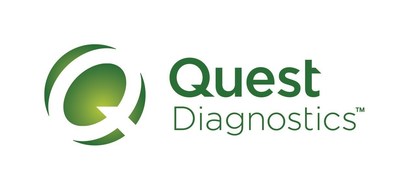Oncologists Report Seeing More Advanced Cancers and Say Current Tests Are Not Catching Cancer Recurrence Early Enough, New Quest Diagnostics Report Finds
Rhea-AI Summary
Positive
- 94% of oncologists believe ctDNA MRD testing could reduce cancer recurrence diagnosis delays
- Quest's Haystack MRD test showed faster detection (1.4 months) compared to traditional methods (6.1 months)
- 88% of oncologists support incorporating MRD testing into standard cancer care
- 71% of oncologists prefer working with a single laboratory for comprehensive cancer testing
Negative
- 76% of oncologists report seeing more advanced-stage cancers
- 79% of oncologists report cases where cancer recurrence was missed in earlier stages
- 89% of oncologists express frustration with insurance reimbursement models not keeping pace with innovations
- Current imaging tests fail to detect recurrence early enough in 50% of missed cases
News Market Reaction 1 Alert
On the day this news was published, DGX declined 0.80%, reflecting a mild negative market reaction.
Data tracked by StockTitan Argus on the day of publication.
- More than 3 in 4 oncologists (
76% ) feel they are seeing more advanced cancers, and of these,75% believe that screening barriers are the leading cause, although nearly one-third (32% ) cite "factors that we don't understand yet" - Missed/delayed follow-up care or monitoring appointments by patients (
68% ) and imaging tests not detecting recurrence early enough (50% ) are among the primary reasons cancer recurrence is typically missed, according to oncologists whose patients' cancer recurrence was missed in an earlier stage 94% of oncologists say circulating tumor DNA (ctDNA) minimal residual disease (MRD) testing could reduce diagnosis delays in cancer recurrence but cite hurdles to wide adoption
To access the full report, click here.
Based on a survey conducted by The Harris Poll on behalf of Quest Diagnostics (NYSE: DGX), a leading provider of diagnostic information services, the new report highlights perspectives of medical and surgical oncologists about the prevalence of advanced-stage cancers, the anxieties and barriers they believe patients face in accessing care, and the need for better post-treatment tools. It also provides novel insights into the perceptions of oncologists of an emerging area of clinical testing: ctDNA minimal residual disease (MRD) blood tests to aid in monitoring for residual or recurring cancer in patients treated for solid tumors. Quest Diagnostics launched its first ctDNA MRD test, Haystack MRD™, earlier this year.
"We call it the cancer paradox: As medical advances improve longevity, more patients than ever face the looming risk of cancer recurrence — and the anxieties and challenges that go with it," said board-certified oncologist Yuri A. Fesko, M.D., senior vice president and chief medical officer, Quest Diagnostics. "Our new survey reveals the unique challenges oncologists face at a time when an unprecedented number of Americans are alive following cancer treatment but for whom the specter of recurrence remains a real concern for both the patient and the provider."
Despite new treatments, new cancer cases in the
Key survey findings:
76% of oncologists feel they are seeing more advanced-stage cancers, and of these,75% believe that screening barriers are the leading cause, followed by rise in aging population (48% ) and lifestyle factors (43% ). Roughly one in three (32% ) cite "factors that we don't understand yet" behind the perceived increase.- While
89% of oncologists believe identifying cancer recurrence at the earliest possible stage can improve outcomes, roughly 8 in 10 oncologists (79% ) report seeing patients whose cancer recurrence was missed in an earlier stage. Of these oncologists,68% claim missing, skipping and/or delaying follow-up care and monitoring appointments is the most common reason cancer recurrence is typically missed. 87% of oncologists claim anxiety/worry is among the most challenging aspects of cancer care for patients, versus53% who cite treatment side effects as among the most challenging.- Nine in 10 oncologists (
89% ) express frustration that insurance reimbursement models are unable to keep up with the latest tech innovations in cancer care, screening, and diagnostics.
Oncologists Value ctDNA MRD Tests but Cite Barriers to Adoption
Oncologists have traditionally monitored for residual or recurring cancer using a range of expensive or invasive technologies, including positron emission tomography (PET) scans, magnetic resonance imaging (MRI), and tissue biopsies, as well as more accessible but typically nonspecific lab tests.
Yet, oncologists expressed concerns about these traditional methods. Among oncologists whose patients' recurrence was missed in an earlier stage, half (
"We were struck by how many oncologists cited the limitations of imaging in detecting cancer recurrence early," said Dan Edelstein, vice president, general manager and co-founder of Haystack Oncology, a Quest Diagnostics company. "There's a clear desire for more sensitive tools, and oncologists increasingly see high-performance ctDNA blood tests as a promising solution for earlier detection of residual or recurrent cancer."
Nearly nine in 10 oncologists (
A study by researchers at Memorial Sloan Kettering Cancer Study published in The New England Journal of Medicine (NEJM) in April 2025 found that the Haystack MRD test was a "reliable liquid biopsy surrogate" for tissue biopsy results in assessing efficacy of an immunotherapy that successfully treated
The survey also polled oncologists on their preferences for accessing laboratory tests:
Study Methodology
On behalf of Quest, The Harris Poll surveyed oncologists (174 medical oncologists and 76 surgical oncologists) between August 6 and September 4, 2024, to gather insights into how they perceived and manage the challenges of cancer recurrence. Read the study here for complete methodology.
About Haystack MRD™
Finding the needle of cancer with a simple blood draw: That's Haystack MRD, a highly sensitive and specific liquid biopsy test designed by cancer genomic pioneers and liquid biopsy experts to uncover the lowest level of circulating tumor DNA (ctDNA)—tiny bits of DNA in the bloodstream that originate from tumor cancer cells that can signify residual, recurrent, or resistant disease. Used in multiple clinical trials and research studies with top institutions in the
About Quest Diagnostics
Quest Diagnostics works across the healthcare ecosystem to create a healthier world, one life at a time. We provide diagnostic insights from the results of our laboratory testing to empower people, physicians and organizations to take action to improve health outcomes. Derived from one of the world's largest databases of de-identifiable clinical lab results, Quest's diagnostic insights reveal new avenues to identify and treat disease, inspire healthy behaviors and improve healthcare management. Quest Diagnostics annually serves one in three adult Americans and half the physicians and hospitals in
i Siegel RL, Kratzer TB, Giaquinto AN, Sung H, Jemal A. Cancer statistics, 2025. CA Cancer J Clin. 2025;75(1):7–33. doi:10.3322/caac.21871.
ii Tonorezos E, Devasia T, Mariotto AB, Mollica MA, Gallicchio L, Green P, Doose M, Brick R, Streck B, Reed C, de Moor JS, Prevalence of Cancer Survivors in
iii Aliperti LA, Predina JD, Vachani A, Singhal S. Local and systemic recurrence is the Achilles heel of cancer surgery. Ann Surg Oncol. 2011 Mar;18(3):603-7. doi: 10.1245/s10434-010-1442-0. PMID: 21161729; PMCID: PMC11156256. Local and Systemic Recurrence is the Achilles Heel of Cancer Surgery - PMC
![]() View original content to download multimedia:https://www.prnewswire.com/news-releases/oncologists-report-seeing-more-advanced-cancers-and-say-current-tests-are-not-catching-cancer-recurrence-early-enough-new-quest-diagnostics-report-finds-302452910.html
View original content to download multimedia:https://www.prnewswire.com/news-releases/oncologists-report-seeing-more-advanced-cancers-and-say-current-tests-are-not-catching-cancer-recurrence-early-enough-new-quest-diagnostics-report-finds-302452910.html
SOURCE Quest Diagnostics










